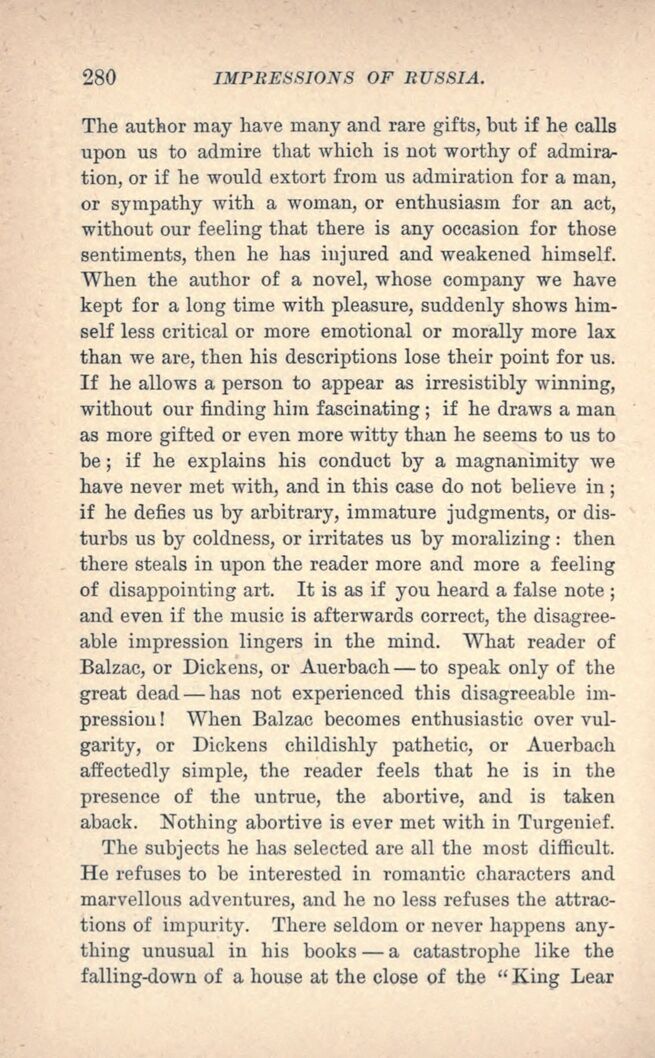
Full resolution (JPEG) - On this page / på denna sida - Impressions of Russian Literature - V

<< prev. page << föreg. sida << >> nästa sida >> next page >>
Below is the raw OCR text
from the above scanned image.
Do you see an error? Proofread the page now!
Här nedan syns maskintolkade texten från faksimilbilden ovan.
Ser du något fel? Korrekturläs sidan nu!
This page has been proofread at least once.
(diff)
(history)
Denna sida har korrekturlästs minst en gång.
(skillnad)
(historik)
The author may have many and rare gifts, but if he calls
upon us to admire that which is not worthy of admiration,
or if he would extort from us admiration for a man,
or sympathy with a woman, or enthusiasm for an act,
without our feeling that there is any occasion for those
sentiments, then he has injured and weakened himself.
When the author of a novel, whose company we have
kept for a long time with pleasure, suddenly shows
himself less critical or more emotional or morally more lax
than we are, then his descriptions lose their point for us.
If he allows a person to appear as irresistibly winning,
without our finding him fascinating; if he draws a man
as more gifted or even more witty than he seems to us to
be; if he explains his conduct by a magnanimity we
have never met with, and in this case do not believe in;
if he defies us by arbitrary, immature judgments, or
disturbs us by coldness, or irritates us by moralizing: then
there steals in upon the reader more and more a feeling
of disappointing art. It is as if you heard a false note;
and even if the music is afterwards correct, the
disagreeable impression lingers in the mind. What reader of
Balzac, or Dickens, or Auerbach — to speak only of the
great dead — has not experienced this disagreeable
impression! When Balzac becomes enthusiastic over
vulgarity, or Dickens childishly pathetic, or Auerbach
affectedly simple, the reader feels that he is in the
presence of the untrue, the abortive, and is taken
aback. Nothing abortive is ever met with in Turgenief.
The subjects he has selected are all the most difficult.
He refuses to be interested in romantic characters and
marvellous adventures, and he no less refuses the
attractions of impurity. There seldom or never happens
anything unusual in his books — a catastrophe like the
falling-down of a house at the close of the “King Lear
<< prev. page << föreg. sida << >> nästa sida >> next page >>